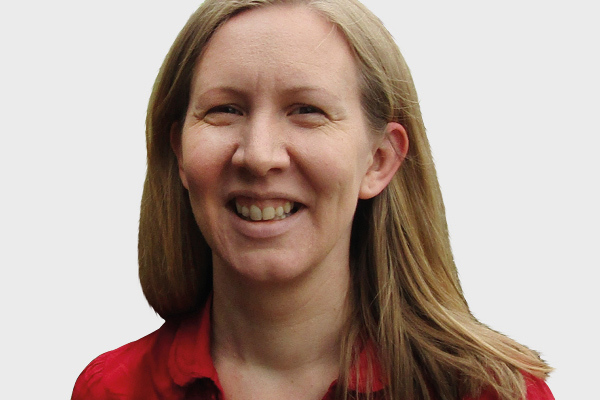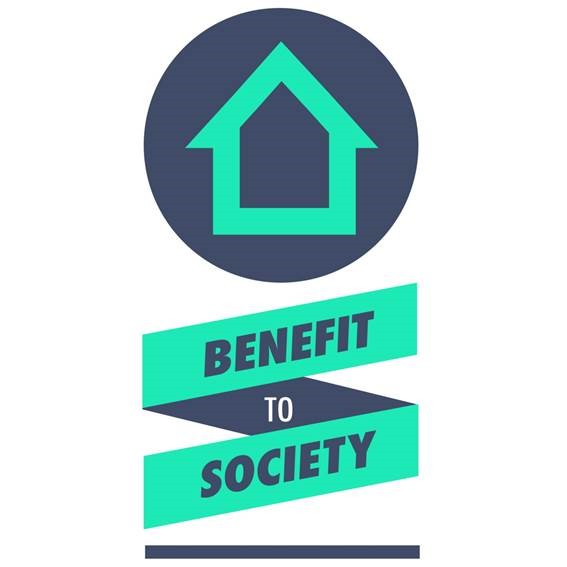You are viewing 1 of your 1 free articles
 Jules Birch
Jules BirchCampaigning for a fairer media portrayal of social housing tenants
A campaign to change media narratives faces an uphill challenge, but there is much that social landlords and journalists can do, writes Jules Birch
News that 90% of social housing tenants feel that the media presents stereotypes of them is depressing but sadly not surprising.
As a report launched at the House of Commons today by the Benefit to Society campaign (see attachment below) argues, the negative views are embedded in whole swathes of TV programming that links housing tenure to benefits status.
But it’s not just about poverty porn like Benefits Street and Council House Crackdown and tabloid headlines about scroungers and large families.
“Even supposedly objective TV and broadsheet news coverage can strengthen the stereotypes.”
More thoughtful programmes like How to Get a Council House can mine the same themes and generate the same hostility.
And even supposedly objective TV and broadsheet news coverage can strengthen the stereotypes by resorting to the lazy clichés of ‘sink’ and ‘crumbling’ estates and using stock pictures and idents of tower blocks and abandoned shopping trolleys.
So it is good to see that my union, the National Union of Journalists, is backing the Fair Press for Tenants guide aimed at journalists, PR people and documentary makers.
And the level of media interest in today’s launch and opinion poll also bodes well and is a chance to combat the stereotypes and change a few opinions.
However, as we all know, the campaign faces an uphill battle to change public opinion not just about social housing and social tenants but also poverty and welfare benefits.
That’s seen every time a new poverty porn TV programme gets transmitted – for everyone on Twitter and in the media challenging the portrayal of social housing there are others on Twitter and in the right-wing tabloids using it as more reasons to put down tenants.
The issues are long standing and deep seated, as today’s report by Anne Power and Bert Provan makes clear:
- The poor management, design and construction of some post-War estates – though it’s important to note that they were not the inevitable product of council housing but forced on it by central governments that put quantity before quality
- Highly visible events like the collapse of Ronan Point and the riots at Broadwater Farm that embedded an image in the public mind
- The twin impact of the Right to Buy and homelessness legislation that reduced the proportion of homes for rent and increased the proportion of vulnerable households in the social housing that was left
- The impact of waves of welfare reform, cuts in services and ‘scrounger’ rhetoric – when in reality only 7% of tenants are unemployed, 70% are in work or retired, and 23% are unable to work because of caring responsibilities or disability
But other big issues raised by tenants themselves include concern about poor housing management, often by private landlords of ex-Right to Buy properties, and, worryingly, being made to feel uncomfortable about their tenure by someone in an ‘official’ position, including housing association and local authority staff (continues below).
Related Files
So on top of the national campaigning, perhaps progress could start with a reflection on whether social landlords themselves are always doing the best job they can as well as pressure on journalists and TV programme makers to reflect the positive reality, not the negative stereotypes.
Housing minister Dominic Raab tweeted (below) that he was “excited” to be attending the launch – but will he also reflect on the fact that his party has spent most of the past eight years reinforcing the stereotypes about social housing and tenants?
Excited to be joining #Benefittosociety tomorrow hosted by @edvaizey to support their brilliant campaign.
— Dominic Raab (@DominicRaab)Excited to be joining #Benefittosociety tomorrow hosted by @edvaizey to support their brilliant campaign.
— Dominic Raab (@DominicRaab) February 27, 2018
Hopefully journalists will respond to the call to give tenants a fair press – most of the recommendations are things that good reporters should be doing anyway but they are often under huge pressure to churn out content as quickly as possible.
So maybe there is more that social landlords can do, too? Their PR departments can often be better resourced than the cash-strapped local papers reporting their news.
And perhaps social landlords should also ask themselves how far all the talk about tenant ‘involvement’ and ‘empowerment’ really delivers what it says.
“Most of the recommendations are things that good reporters should be doing anyway.”
The report makes the key point that the reduction in the amount of social housing in the past 40 years has not just reduced the options for people in need of good housing, it has also reduced the number of people with direct experience of what it means and the benefit it is to society.
Reaching them and communicating the positive message of what social housing can offer to communities will be one key to success.
All of this would be important at any time but in the shadow of the Grenfell Tower disaster, and the questions that need asking about what role stereotyping may have played in the decision-making that led to the fire, it is vital. Especially for the Social Housing Green Paper to come.
“Perhaps social landlords should also ask themselves how far all the talk about tenant ‘involvement’ and ‘empowerment’ really delivers.”
As Carole Burchett, Soha Housing tenant and retired senior archives assistant at the BBC, puts it:
“I can’t understand why it’s acceptable for the media and politicians to present tenants as constantly taking something from society. It’s just not true. I’ve worked all my life and always lived in social housing with all kinds of different people. Many are working, retired or volunteers and many others are caring for loved ones.
“I feel very strongly that we must do something to challenge this constant attack. When I tell people where I live their expression changes.
“Friends and relatives say to my face, ‘we don’t want any social housing here, we don’t want those sort of people nearby’, even though they know where I live. This campaign is about setting the record straight.”
You can pledge your support below – it only takes couple of minutes.
Jules Birch, award-winning blogger
Click here to pledge your support for Benefit to Society
Benefit to Society
A group of 14 associations and their tenants have got together to challenge common narratives about social housing residents through a campaign called Benefit to Society.
As part of this, the campaign has produced a Fair Press for Tenants guide to help journalists portray social tenants and social housing fairly.
Inside Housing is backing the campaign and will help fact-check and scrutinise articles that portray tenants in a negative light.
Send examples of unfair, misleading or inaccurate reports about social housing tenants to carl.brown@insidehousing.co.uk.



